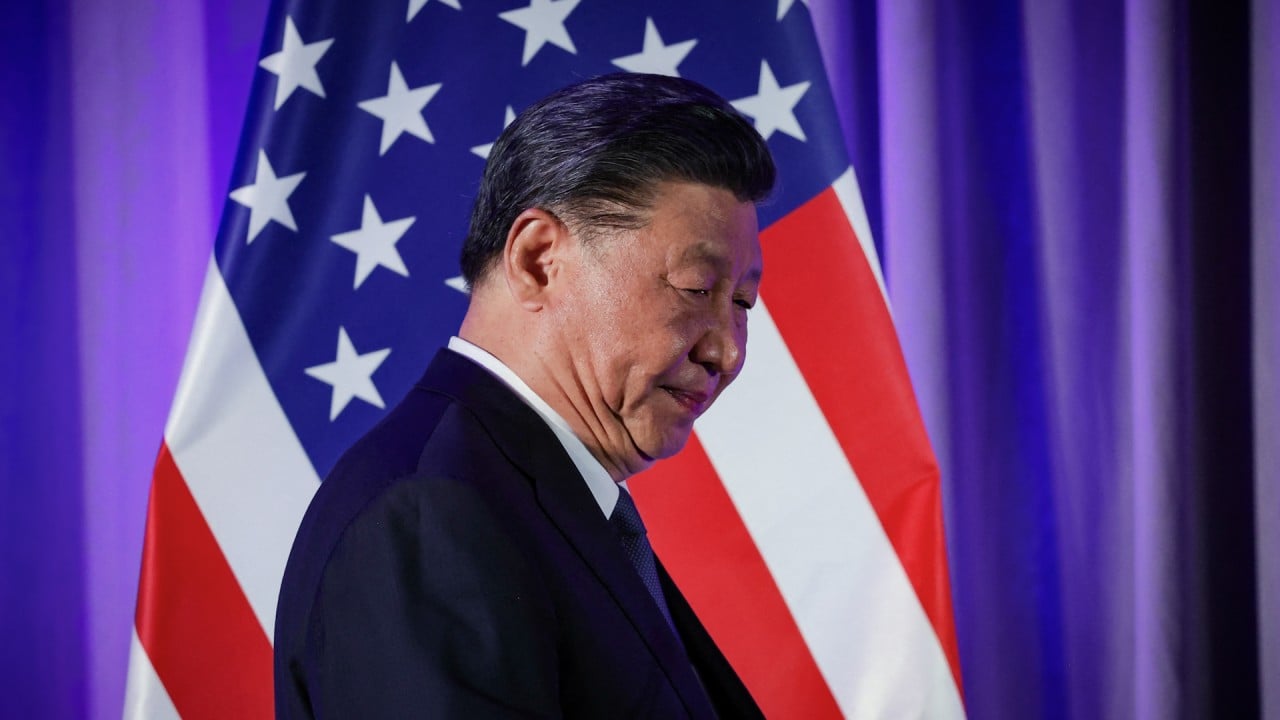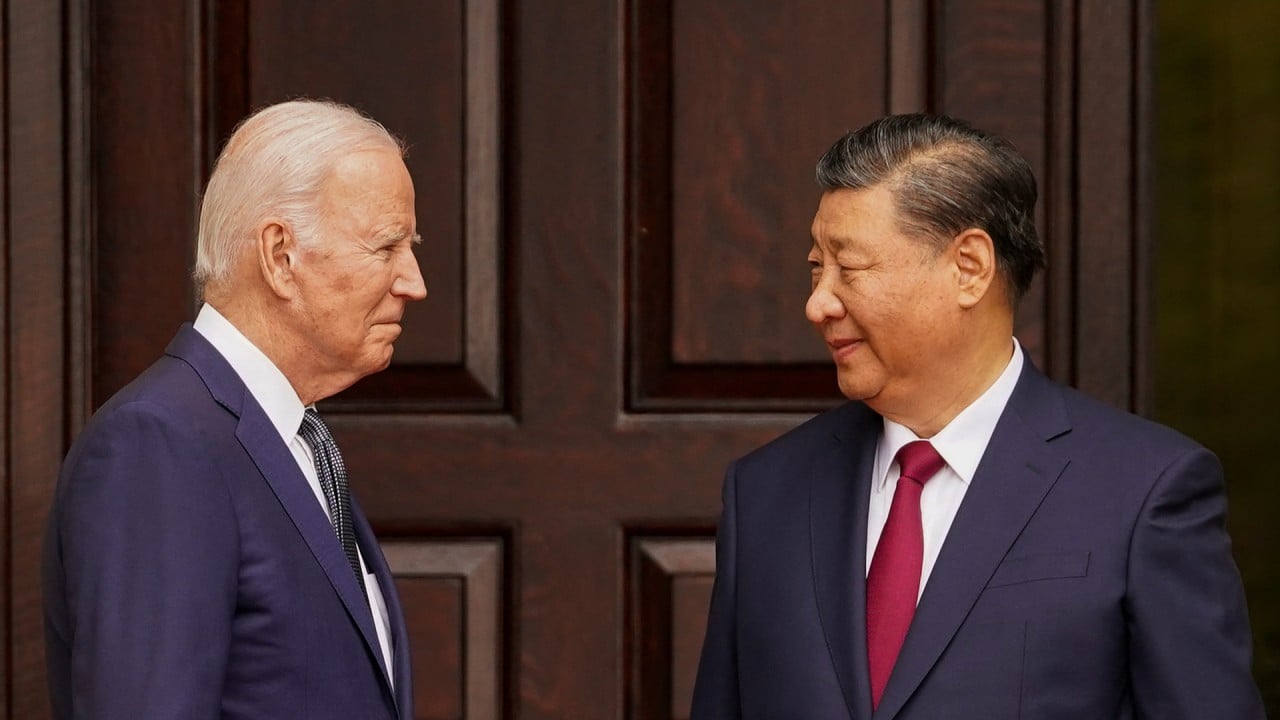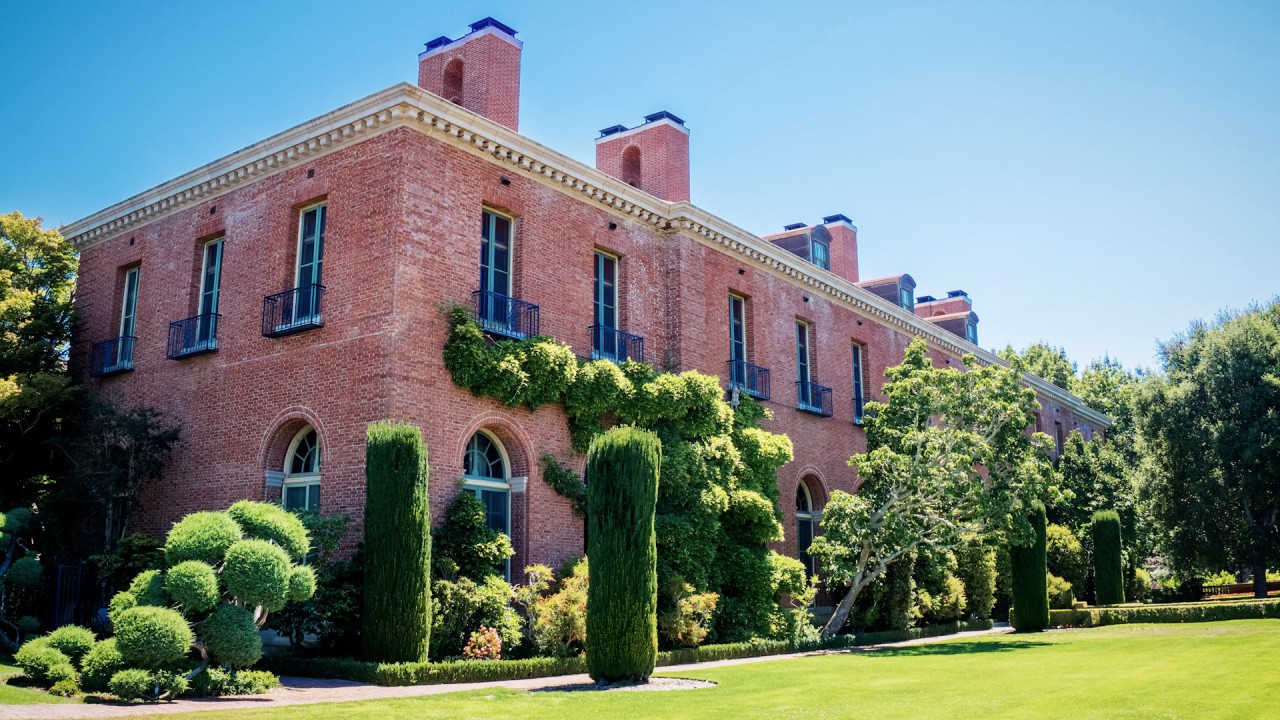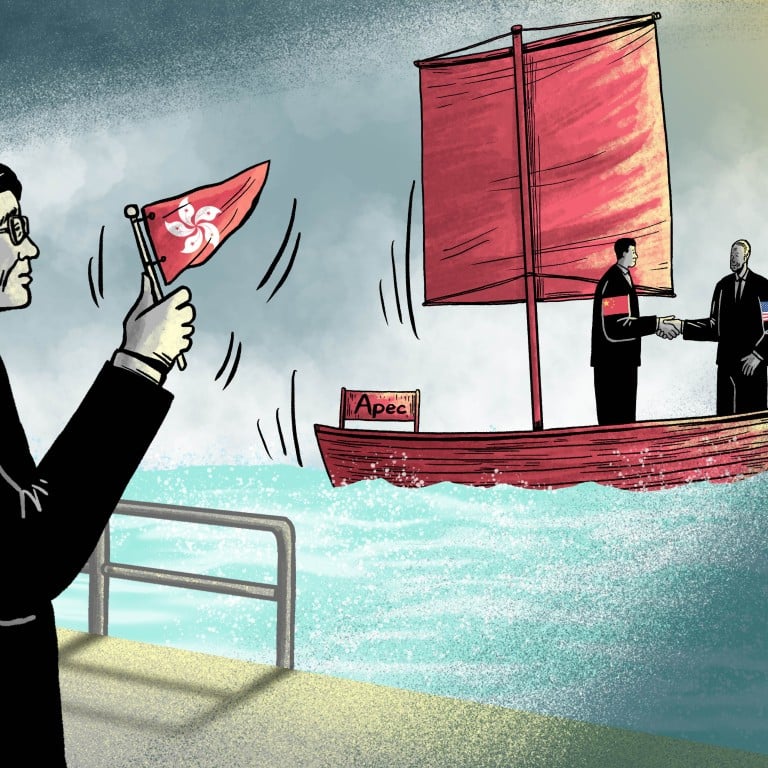
Hong Kong leader John Lee skipped Apec. Did the city win or lose and when will he get US sanctions against him lifted?
- With US-sanctioned leader unable to attend, finance chief went in his place, allowing city to show dignity in face of US derision and its keenness to repair ties, experts say
- US has little interest in escalating sanctions against Hong Kong, while any easing may only come as part of larger shift in relations, they add
On Tuesday, the dam burst. In a rare moment of candour, he said the United States and Hong Kong could do with a more positive relationship but there was nothing he could do to counter the actions of an “unreasonable bully”.
It was a subtle but significant departure from the previous line that Lee took even while condemning the US for the ban he received for his role in the national security law.
In the past, Lee would shrug off the sanctions, berate the US and then declare confidently that Hong Kong would seek business elsewhere, whether it was the regional grouping Asean, the Middle East or other belt and road countries. “The world is a very big place,” Lee said several times before.
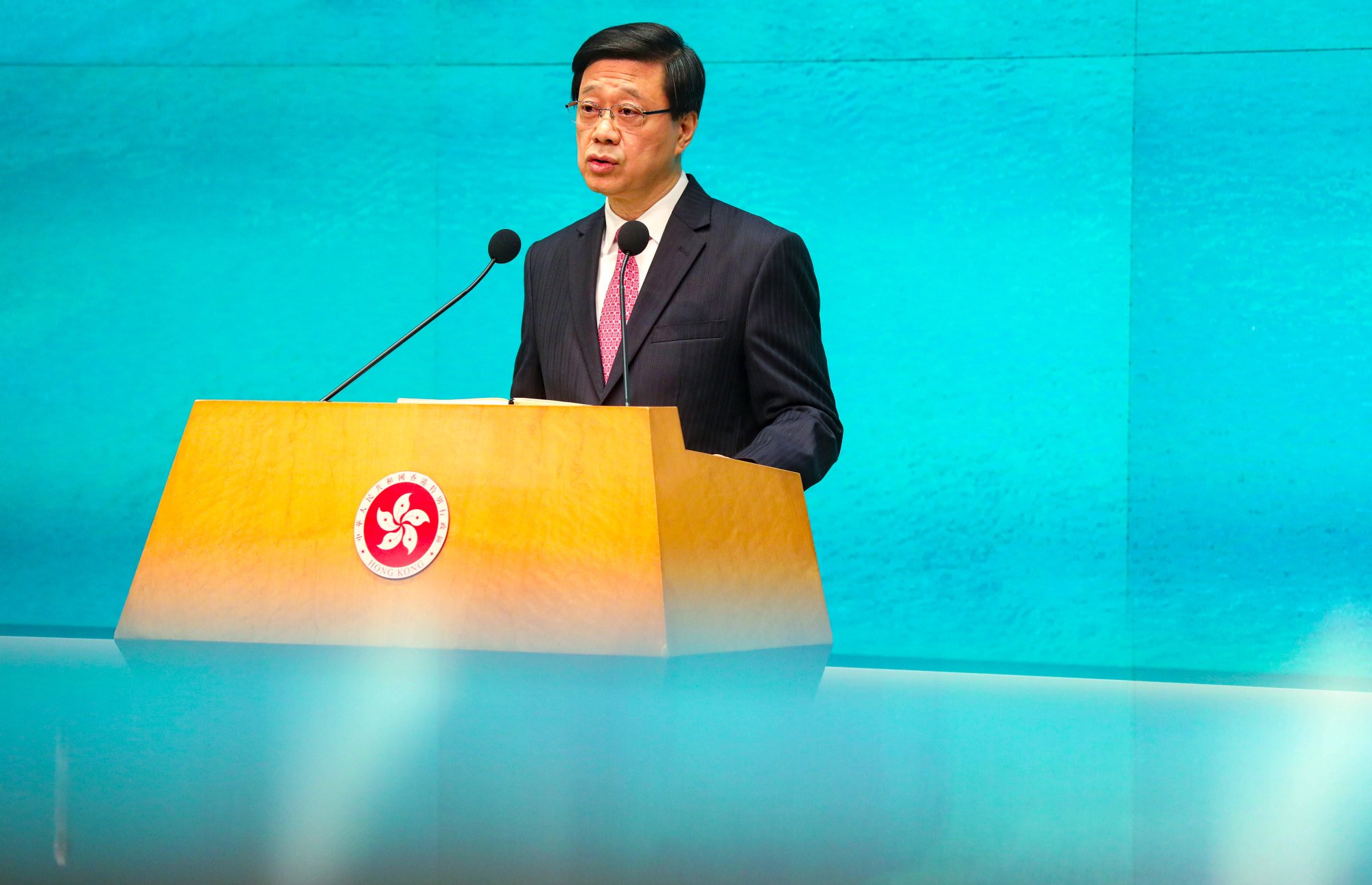
Lee’s candour, however, might not have been spontaneous but carefully choreographed to signal to the US that ties remained vital and ought to be recalibrated now that the Apec summit was over.
As Brian Wong Yue-shun, an assistant professor of political philosophy at the University of Hong Kong, put it: “In order for the ‘one country, two systems’, more specifically the autonomy of Hong Kong and the uniqueness of Hong Kong, to be preserved going forward, it is imperative that we maintain good relations with the West, including the US but also Europe and the UK.”
Despite all that had happened, the US remained an “integral economic, financial, trading and also cultural partner” to the city, he said.
This was why, while the stakes were much higher for China and the US at the San Francisco meeting that ended last week, the Apec gathering was also important for Hong Kong, he and other observers told the Post.
It was about maintaining the city’s standing internationally, showing dignity and openness in the face of US derision and still remaining keen on repairing ties with America, they said.
The jibe about being a “bully” aside, Wong said after the Xi-Biden meeting, Hong Kong felt now there was more leeway to present a more amicable posture and articulate more clearly that Hong Kong still valued the US very much and saw it as an instrumental part of the city’s economic and financial vision.
Not rocking the boat at Apec
John Lee is not the first Hong Kong chief executive to have skipped the annual high-powered Apec summit.
The Asia-Pacific Economic Cooperation or Apec is one of the very few international economic forums in which the city enjoys the same standing as other members. This was a concession granted to Hong Kong after it was returned to Chinese rule by the British colonial masters in 1997 to showcase the one country, two systems governing principle.
Finance chief will tell ‘true stories’ about Hong Kong at Apec summit: John Lee
Hong Kong joined the forum in 1991 but British governors refrained from attending the annual leaders’ summit and would send their financial secretaries instead.
The gathering is a chance for Hong Kong leaders to rub shoulders with the other 20 world leaders, along with the Chinese president, and showcase the city’s accomplishments.
At the latest summit in San Francisco, Lee cited “scheduling issues” for his absence even though he said he had received a personal invitation.
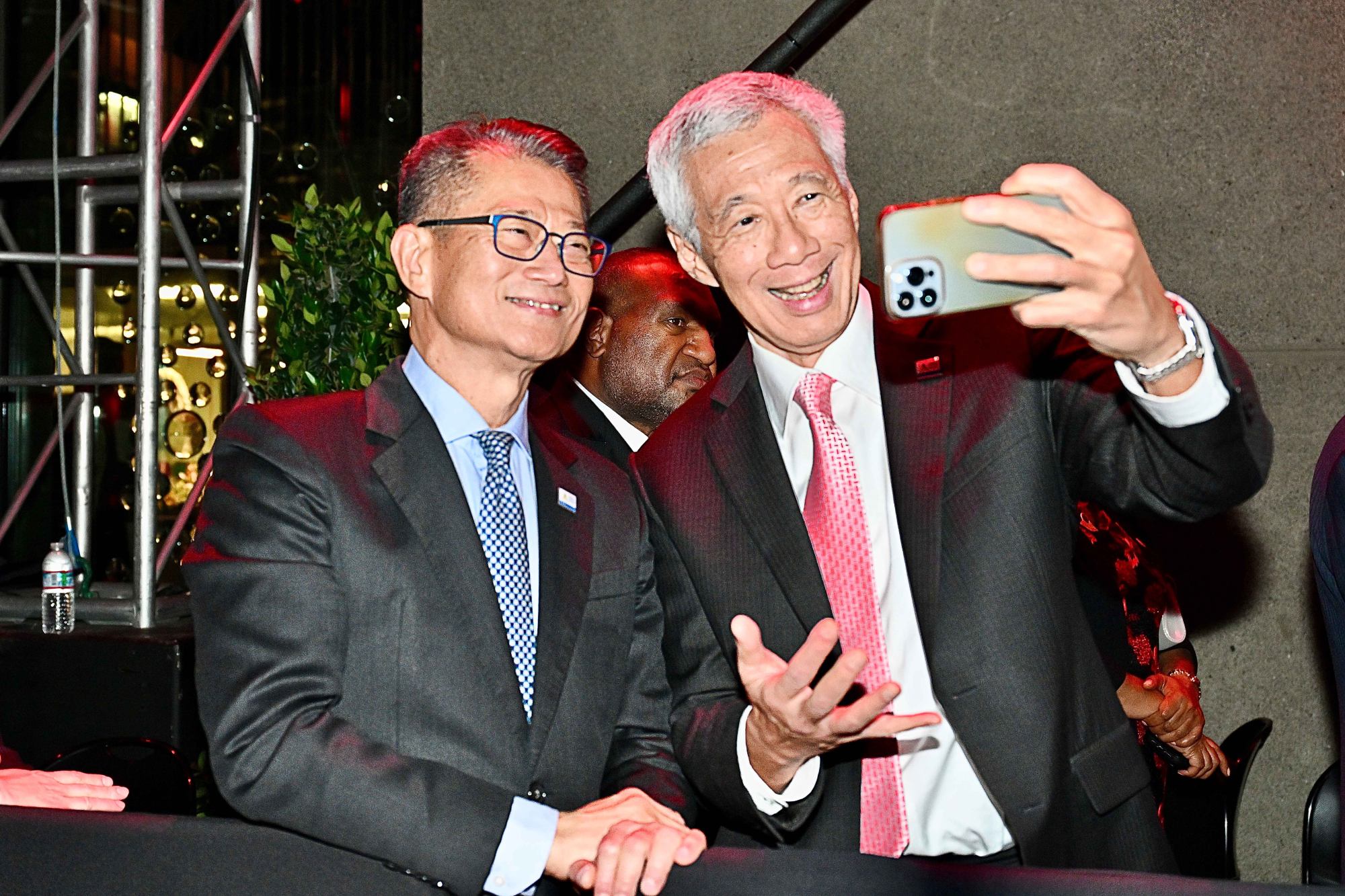
Sources familiar with the arrangement conceded it would have made for an awkward and complicated situation if Lee had lobbied the central government to ask the Americans to allow him on their soil while being sanctioned.
It would have made Hong Kong the focus of attention. The city did not want to be seen as trying to “rock the boat” when a high-stakes meeting between the Chinese and US presidents was being negotiated and when it finally happened, the sources said.
They added that the decision was ultimately not Hong Kong’s to make but the central government’s, but the city could have been vocal about it or lobbied hard. In the end, reticence won.
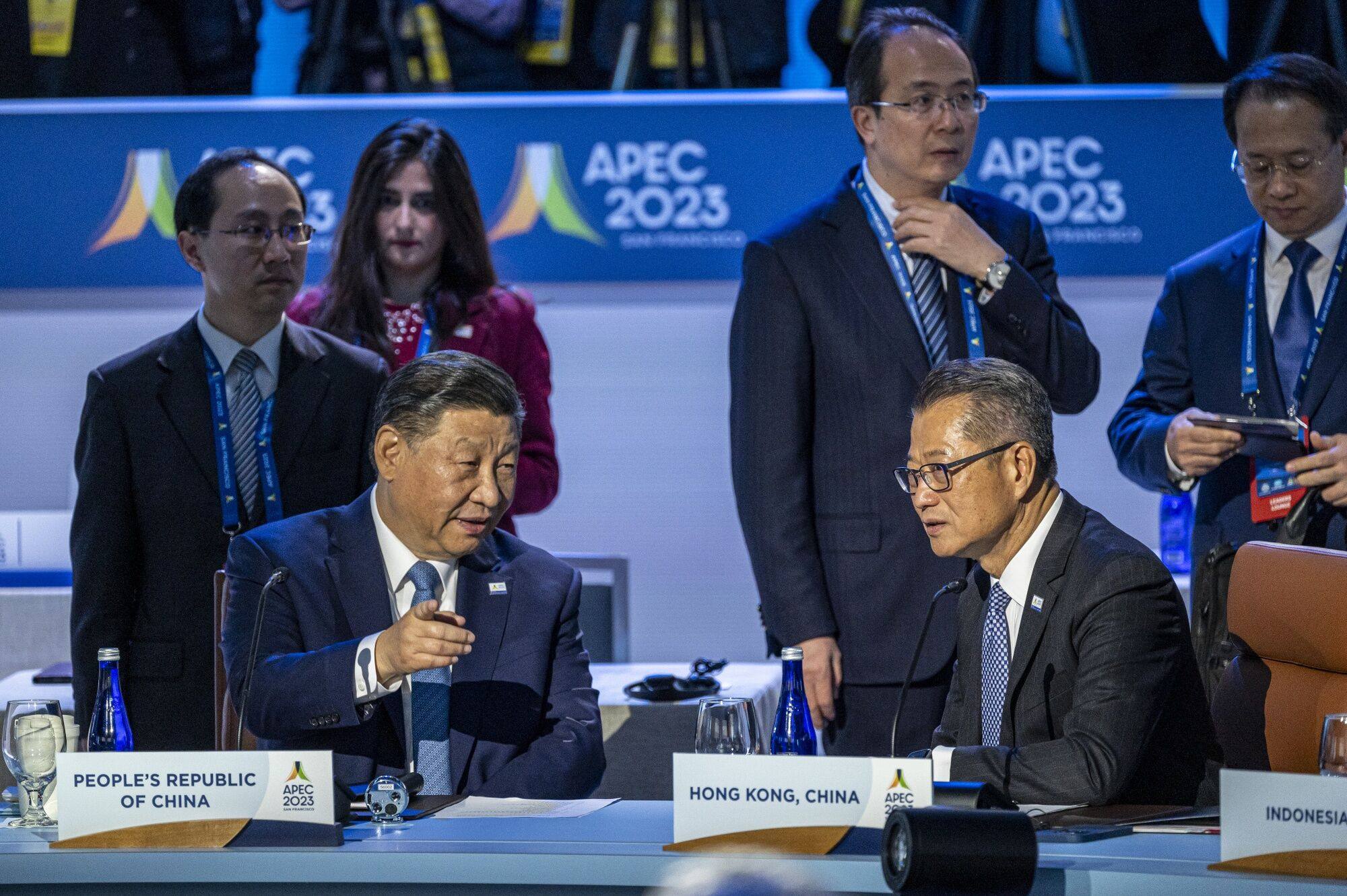
Overall, the consensus appears to be that US-China ties have stabilised after a seeming free fall of the past months. A more positive atmosphere could only be beneficial to US-Hong Kong relations, analysts said.
Yet the question that will not go away is: how long will the sanctions against the city leader be in place? As Lee himself admitted, it had affected his ability to communicate with and travel to the West.
While Hong Kong has put up a brave front on this, the optics of the sanctions do hurt trade ties between Hong Kong and its key trading and investment partner, say analysts. It also risks having an effect of making other allies of the US be more circumspect in their dealings with the city.
Xi Jinping offers cooperation, reassurance during US business dinner
The sanctions issue will put Lee’s administration to tougher tests of political wisdom in his remaining three-and-a-half-year term, observers told the Post, as they anticipated the ban to stay given the US presidential election next year.
“There is no way for any American leader to remove the sanctions against [Hong Kong officials] as doing so would create unnecessary pressure on the leader himself who faces a country with strong anti-China voices,” said Lau Siu-kai, a consultant for Beijing’s semi-official think tank, the Chinese Association of Hong Kong and Macau Studies.
For months, Lee publicly said Washington had a responsibility to “act in accordance with convention” and invite Apec members, while government sources had said they hoped the restriction could be lifted by November.
Chinese officials also were quick to criticise the US for violating Apec rules, while the city government urged the US to “fulfil its basic responsibilities as a host” after The Washington Post reported in July the White House decided to bar Lee from attending, citing sources.
The chief executive did receive an invitation to the summit, and sources told the Post that at one point the US was considering giving him a one-off exception to attend, but the idea was shelved as negotiations became too complex.
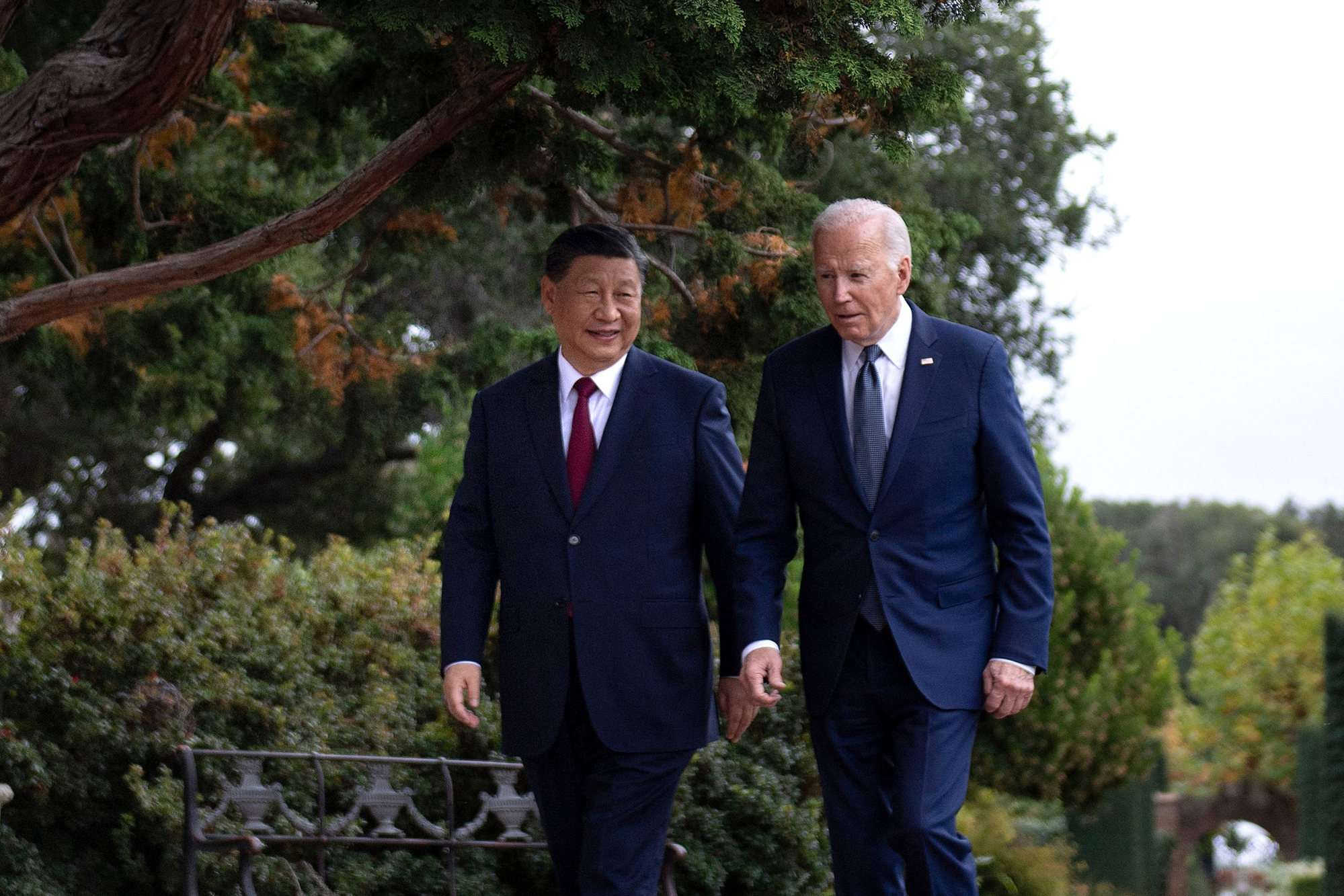
Lau, the veteran China watcher, said Lee’s absence served as a crucial step to facilitate the much-awaited Xi-Biden meeting.
“Lee’s turning down the invitation, which I believed was pre-agreed upon, is to prevent Hong Kong from being an obstacle in China-US relations, which both countries intended to improve,” Lau said.
“All attention was placed on the interaction between the two economies. The Hong Kong leader’s absence would not be that much of a concern to the world, nor would it cause any impact on the city’s future economic development.”
Hong Kong is ‘place where you can make money’, Paul Chan tells Silicon Valley
The veteran China watcher added that the “prearranged” absence showed that the US side very much valued its relations with China, while the latter obliged accordingly.
Meanwhile, Chan, who represented Lee on the US trip, shared the spotlight with Xi when he updated the president on the city’s economic and social situation, including steps taken to lure talent and companies during the leader’s meeting.
He also got the chance to meet Silicon Valley entrepreneurs and businesspeople at a lunch, telling them the city is a “place where you can make money and build your wealth”.
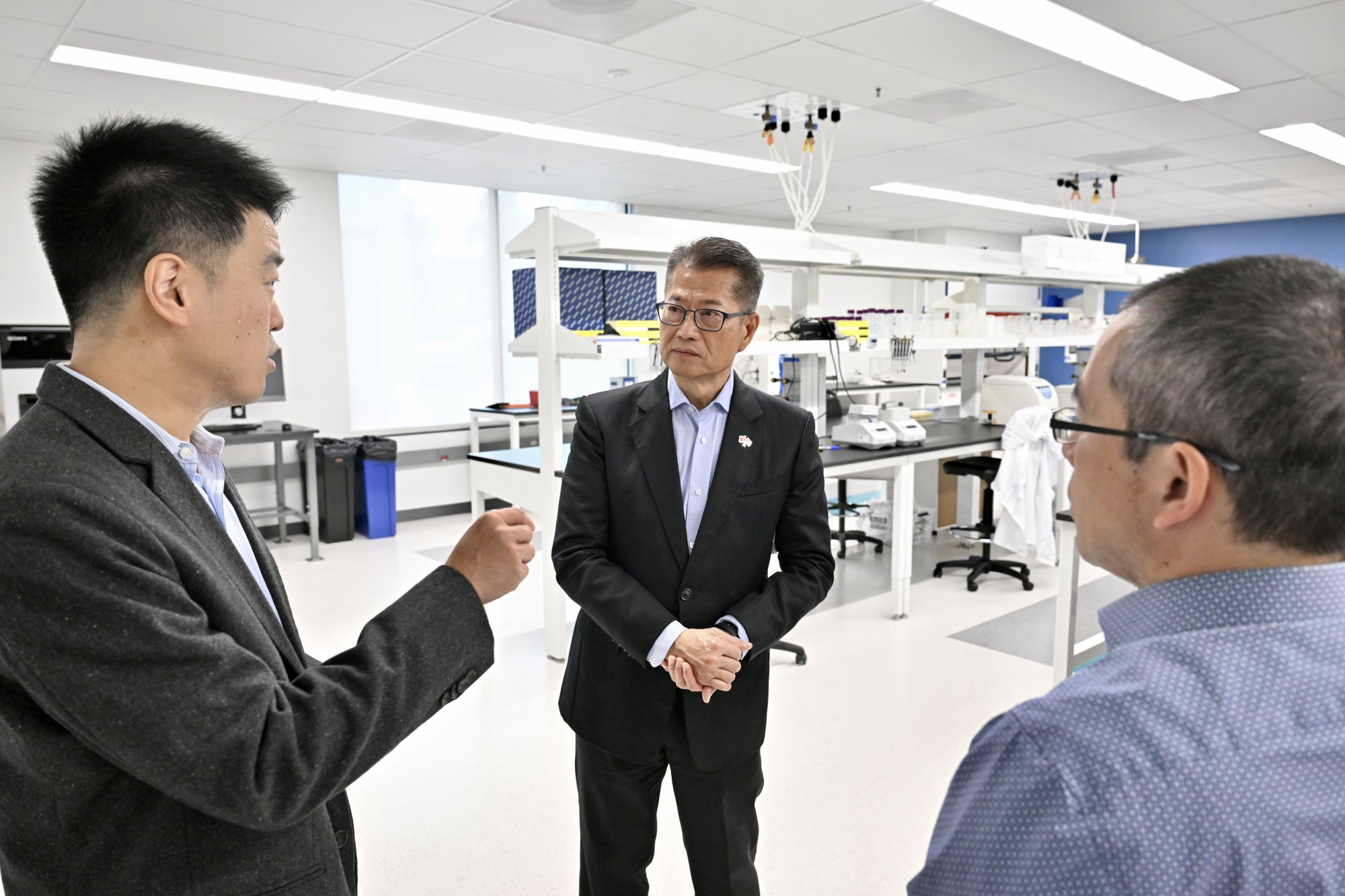
“These few stolen moments with leaders only provide time for niceties, honestly,” said Chong Ja Ian, associate professor at the department of political science at the National University of Singapore.
“Chan making a pitch to Silicon Valley professionals is probably more consequential, although Hong Kong still has some way to go to create a tech ecosystem.”
Ryan Mitchell, an associate professor of law at Chinese University, said the optics of Chan and Xi’s interaction signalled Beijing’s continued support for Hong Kong’s status as a separate member of important international institutions.
He added that Chan’s attendance also “suggested little interest from the US administration in escalating the sanctions package against Hong Kong.”
Finance chief Paul Chan updates Xi Jinping on Hong Kong at Apec talks
An improving US-HK relationship?
Even as negotiations were taking place about the sanctions and the Xi-Biden talks, on the ground US-Hong Kong ties were seeing a shift, with more visits by diplomats, academics and business visitors.
Observers attributed it to a course correction after three years of trying to push the city into irrelevance following the imposition of the security law.
Last month, California Governor Gavin Newsom also made a week-long trip beginning with a climate discussion in Hong Kong, before continuing on to Beijing, Shanghai, and the provinces of Guangdong and Jiangsu.
Hong Kong to host climate forum for US and mainland China, targeting bay areas
According to the city government’s latest internal assessment, Hong Kong-US trade ties had not been significantly undermined despite there being no interactions between Lee and any American officials in the past few years under the sanction restrictions, sources said.
“Hong Kong’s unique role as a place where business and political deals are made will remain, and that the worst time of the China-US tension has come and gone,” one of the insiders said.
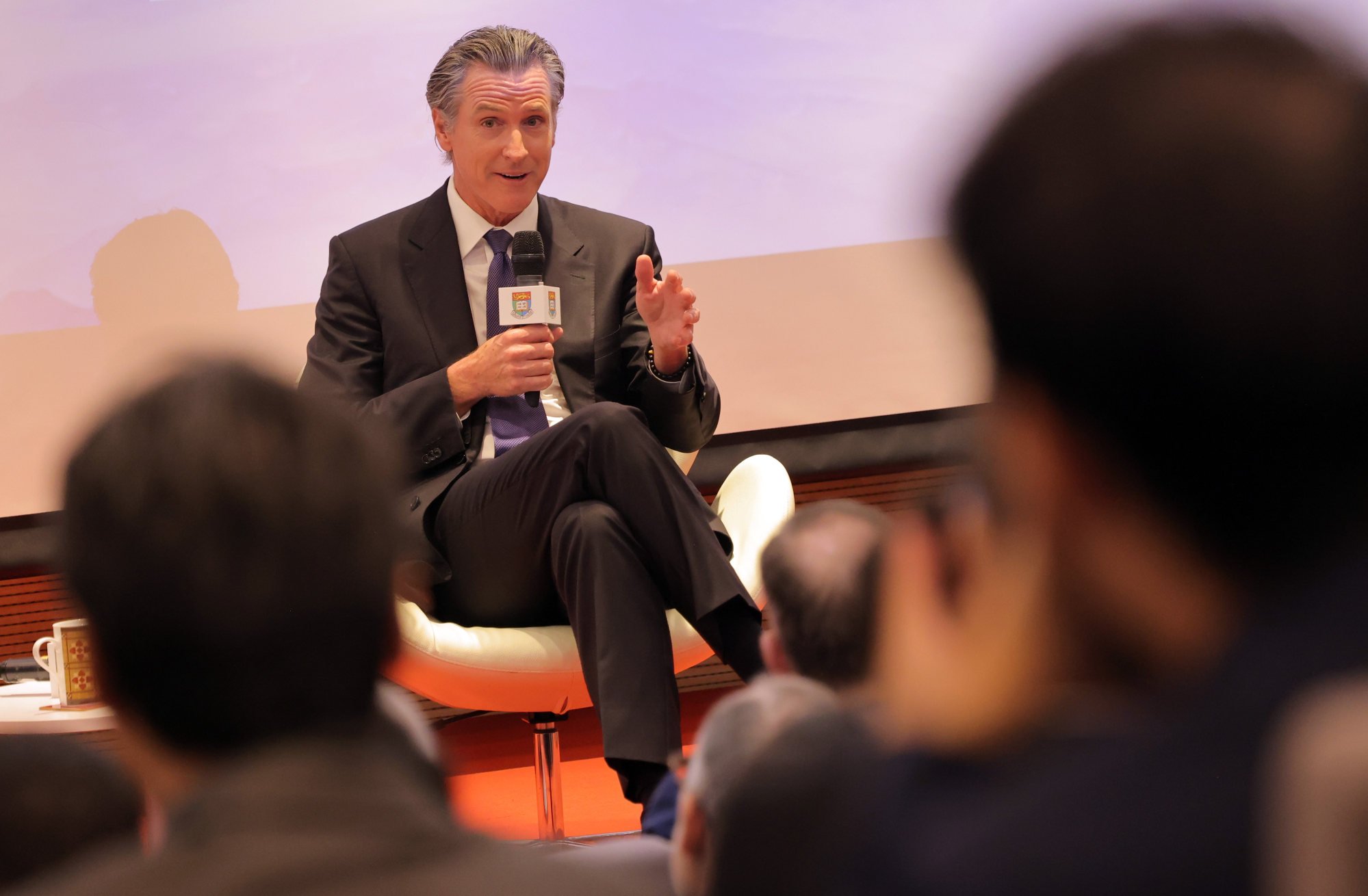
But several key trade statistics last year show a downward trend. US exports of goods to Hong Kong dropped 13.6 per cent in 2022, its exports of services were down 6.1 per cent, and its foreign direct investment in the city marked a 3.3 per cent decline in a year, according to figures from the Office of the United States Trade Representative.
Trade figures could indicate a wider economic slowdown but also suggest ties could be better. The optics of a sanction are of little help to the relationship, say analysts.
But international relations expert Wilson Chan Wai-shun, of Chinese University, said the important gauge of China-US relations lay in economic and trade links, rather than sanctions on particular officials, noting that financial officials were often not included in the list.
Still, in the case of Hong Kong, he doubted the US would remove Lee from the sanctions list, at least not before next November’s presidential election.
“Unless China lifts sanctions against some American officials first, then we could see the US do the same thing in return,” he said.
Sanctions also remain a weapon of choice, as seen in the latest move by a group of American legislators proposing a bipartisan bill earlier this month targeting 49 city officials, judges, and prosecutors for their roles in “human rights violations” under the national security law.
Xi-Biden summit hit pause on troubled US-China relations: analysts
Mitchell, the Chinese University scholar, expected the US presidential election would play a determining role in whether the new additional sanctions would succeed or be brushed aside because of other legislative priorities.
Although he saw Washington’s lack of interest in wanting to lift the sanction against Lee – which would be seen as a “major concession to Beijing” – he still saw room for manoeuvring.
He said Washington could choose to lift or ease sanction measures against Hong Kong “as part of a larger agreement” touching on both economic and national security issues, especially after the US election.
“We’re clearly not at that stage yet, but more progress towards détente could eventually point in that direction,” he said.
Additional reporting by Willa Wu



